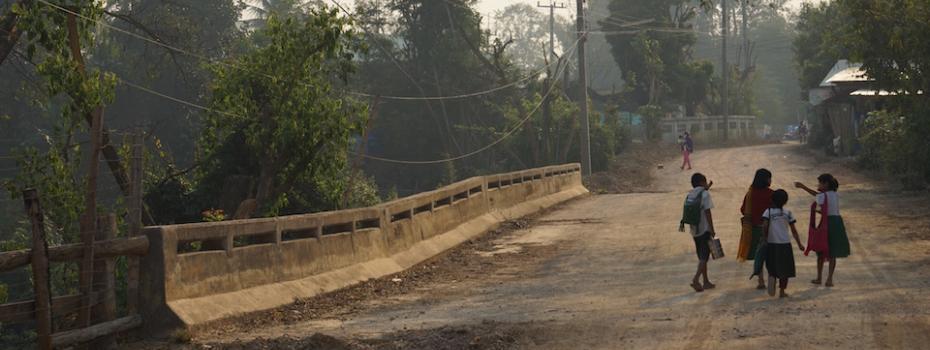Humanitarian Activities
The work done by SMRU has changed the modern therapeutics of malaria and has relegated malaria from the single most important medical problem in the refugee camps, to a rare cause of illness and death amongst the 130,000 people who now live in the camps. SMRU’s work continues to monitor, treat and control malaria both in the camps, and amongst the communities of Burmese migrant workers outside the camps for who malaria is still a serious threat.
Background
There are more than 100,000 Karen, Mon, Karenni ethnic minority living in a string of refugee camps along the Thai-Myanmar border. Since the middle of the 1990s the population influx from Myanmar has increased dramatically for both economic and political reasons. People from all ethnic groups (Shan, Karenni, Karen, Mon and Burman) are travelling back and forth across the border in search of work...read more
Clinics
SMRU's main office, located in Mae Sot, Thailand, provides logistical support and has laboratory facilities including a malaria lab, haematology lab, insectary, microbiology lab and freezer-room. In Maela the structure includes a laboratory, an obstetric unit, an outpatients and in-patients department, an ante and post-natal clinic, a computing area and staff accommodation. Advanced training has been provided over the years so that today, highly competent Karen staff are operating the Unit. Several dispensaries to serve migrant populations have been set up along the border...read more
Community Engagement
The malaria-focused CE work started with four pilot villages as part of the TCE study in 2013. Through the experiences gained and lessons learned a guiding set of key themes was established including principles and methods that could be applied across a wide geographic range in the scale-up programme (i.e. METF). Three major themes emerged from this preliminary work: human behaviour, geography and social structures...read more
Maternal & Child Health
SMRU's Maternal and Child Health (MCH) research program utilizes operational field based research to identify and solve problems relevant to the local population of women and young children. The areas of research are deliberately broad and address reduction of mortality and morbidity in mothers and infants in relation to infection, nutrition, quality of care and training of local health care workers...read more
Malaria Elimination Task Force
The overall goal of the project is to decrease the prevalence of clinical and sub-clinical P. falciparum infections in a defined area where artemisinin resistance has been documented (control activities) and then to proceed with elimination of the parasite reservoirs (elimination activities). This is achieved using the key strategies identified in the Global Fund’s Regional Artemisinin Initiative Inter Countries Component (RAI-ICC) Call for Proposals and...read more
Tuberculosis Program
SMRU's Tuberculosis (TB) program began in late 2009. We provide diagnosis and treatment services for TB, TB/HIV co-infection and multi-drug resistant TB (MDR TB) for displaced, migrant, cross border populations in Tak province located in Thailand, and Myanmar populations in the Myawaddy district on eastern Myanmar border...read more


